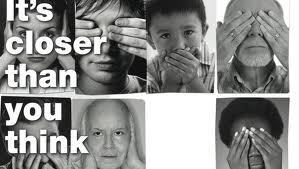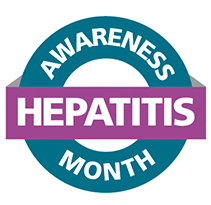 World Hepatitis Day is July 28th. Organizations and advocates around the globe are organizing viral hepatitis events to educate, screen, and raise viral hepatitis awareness in their communities.
World Hepatitis Day is July 28th. Organizations and advocates around the globe are organizing viral hepatitis events to educate, screen, and raise viral hepatitis awareness in their communities.
World hepatitis Day was launched by the World Hepatitis Alliance in 2008. Last year, July 28th, the birthday of Dr. Baruch Blumberg was designated as the official World Hepatitis Day. Dr. Blumberg won the Nobel Prize in 1976 for his discovery of the hepatitis B virus, and development of the first hepatitis B vaccine. He was also an inspirational friend to the Hepatitis B Foundation.
Please take a look at the proposed World Hepatitis Day events occurring around the globe. The chart is a work in progress, so let me know your activates for the day or days preceding World Hepatitis Day, and a contact point, and I’ll be sure to update the chart ASAP. Leave a comment or send your info to contact@hepb.org. If you’re not planning an event, but would like to get involved, check out any events that may be near you. Countries are listed alphabetically.
Don’t forget to take advantage of the promotional campaign materials provided by the World Hepatitis Alliance. World Hepatitis Day really is “closer than you think”.
| Country | Event | Contact |
| Australia | Queensland:
Australian Capital Territory (ACT): WHD Community & Stakeholder Forum. Canberra. New South Wales (NSW): Numerous community events, including Love your Liver or Healthy liver themed lunches and breakfast events; art themed events and workshops; general hepatitis health promotion events; and targeted events focussing on Indigenous communities, youths, prisoners, injecting drug users, culturally and linguistically diverse communities, and tattooing. Victoria (VIC): Spotlight on hepatitis B aiming to increase the capacity of community and health workers to include hepatitis B in their work; Street Shot photo exhibition and Love your liver lunch, using photography to educate young people about viral hepatitis Western Australia (WA): Street Art exhibition targeted at youths; Love your Liver educational workshop and lunch; WHD Redbacks Basketball Game; CALD Community hepatitis B Workshop |
Cairns events:
Rhondda Lewis, Ph. 0061742264761 Email:
|
| Bangladesh |
|
Dr. Mamun-Al-Mahtab |
| Ghana | Public disease awareness campaigns on radio and TV using KE drawn from the Theobald hepatitis B foundation Lectures and presentations targeting high schools, Market places and churches
Events will occur in Tamale 23-July, Kumasi 25-July, Accra 28-July
Media programs to include:
|
Theobald Owusu-Ansah
+233-20-8269214 / +233-247093893 |
| Hong Kong | Hepatitis B
Hepatitis C:
|
Dr. Nancy Leung
Prof CL Lai |
| New Zealand |
|
Hepatitis Foundation of New Zealand
|
| Sweden |
|
Kaj Johansson RN |
| United States | NYC – community orgs and hepatitis advocates celebrate WHD by hosting events across all 5 boroughs of NYC
Philadelphia- Viral Hepatitis Symposium for patients, families and members of the general public. http://www.liverfoundation.org/chapters/midatlantic/events/823/ Register today. |
http://www.facebook.com/NYCWorldHepDay
Delval@liverfoundation.org or Erica Stein at 215-425-8080 |
| World Hepatitis Alliance |
|
http://worldhepatitisalliance.org/WorldHepatitisDay/GuinnessWorldRecord.aspx |













